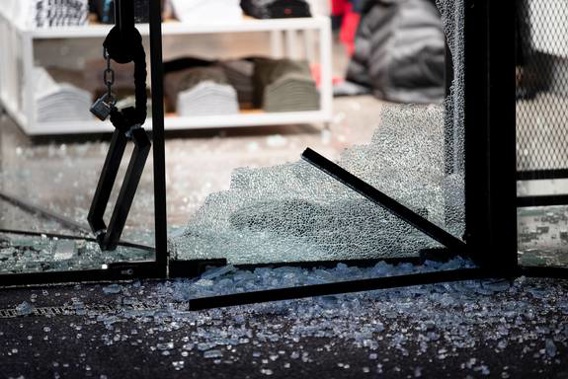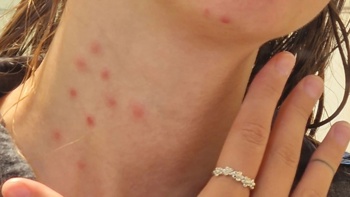
A startling look into the link between children and youth involved in ramraids, and family harm.
On 26 May 2022, the Police National Youth Team prepared notes for the Children's Commissioner regarding the relationship between family harm and child and youth identified in recent ram raid events.
A sample of 63 children and young people was drawn from those involved in ram-raids in Christchurch, Bay of Plenty, Auckland, and Waikato, in the year to May 2022.
Their ages ranged from 10 to 18 years old, with an average of 14.4 years.
More than 95% were linked to at least one family harm event before first coming to Police attention as a suspect or offender.
They were, on average, about four years old at this first contact with Police.
Sixty-five per cent of the sample were linked to five or more family harm events and 35% were linked to more than 10 events.
Most of the group were children when they were first recorded by Police as a suspect or offender, with just over half of the group aged 10 to 12 at the time.
Only three of them were recorded in the Police system as having gang involvement.
Sixty-two per cent of them had come to Police attention as a missing person on at least one occasion.
And just over half (52%) had come to Police attention as an unaccompanied minor at least once.
Maori were heavily over-represented, making up 71% of the group.
The majority were male, at 85%.
Shine senior family violence educator Mira Taitz says there is good support available for children who’ve experienced family harm -- but there are gaps of people not accessing it.
“We know that children respond to violence in a variety of ways, there's no one response from children,” she said.
“Some children shut down, some go quiet, some focus on protecting their siblings, and other children act out.”
She says there are good programmes available – but there are waiting lists and it can be hard getting children into counselling.
Our Children's Commissioner agrees that there are complex reasons behind youth participating in ram raids.
Judge Frances Eivers says we can’t ignore the fact that for some of these mokopuna involved in ram raids, their home may be chaotic, unstable, possibly even dangerous.
She says it's important we focus on a holistic approach -- where whanau and community, including iwi and Police, work collaboratively to wrap support around these youth that might be more at risk.
Minister for the Prevention of Family and Sexual Violence, Marama Davidson, says it’s important to keep in mind the majority of people who are victims and survivors of violence, are not criminals.
But, it doesn’t surprise her that the trauma and harm of violence has that much of an impact, that kids go on to commit crimes like ram raids.
She says there has not been enough support for them for a long time.
Davidson launched a strategy last year called Te Aorerekura – which is a comprehensive, generational 25-year strategy to eliminate family and sexual violence.
But, it requires a whole different work of working across government.
“The evidence, the community, the sector experts at the forefront of family and sexual violence have been very clear for a long time that we need enduring solutions. That's why the simplistic short-term 'tough on crime', 'tough on youth' responses do not work,” she said.
“When you have people involved with violence, let's say a politician who may have caused violent harm to someone at a boarding school. When they are wrapped with support, understanding forgiveness and given opportunities to carry on and lead a good life. That's how we can interrupt cycles of violence. That is how people can be supported to lead healthy lives.”
Meanwhile, National’s Justice spokesperson Paul Goldsmith maintains there needs to be harsher consequences for youths involved in serious crimes, like ramraids.
He says there’s never an excuse for creating new victims.
"What we see with these ram raids and smash and grab attacks is very considerable areas of the retail sector where workers are frightened to go to work and a colossal amount of damage has been done.”
While he says there’s no question ‘we need to deal with family issues these kids face’, there’s an overwhelming message that there are still no real penalties for them.
"Our sense is that we're too much at the 'family conference' end of the spectrum -- and they're not getting the serious consequences for their actions.
“They are very appropriate for first-time offenders -- you know, we want to keep people out of the justice system as much as we can.
“But when we're talking about serious offences, particularly when they're done multiple times, and this is where the problem lies -- not dealing effectively with that group.
Earlier this month, the Government announced extra measures to place more young people in education, training or work to drive down youth crime.
The Better Pathways package extended a number of programmes aimed at youth support.
Take your Radio, Podcasts and Music with you









